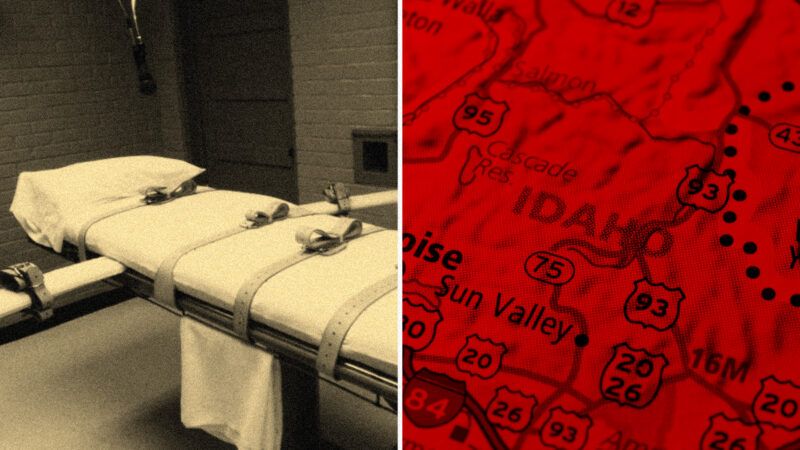Idaho Likely To Authorize Execution by Firing Squad
"The firing squad, in my opinion, is beneath the dignity of the state of Idaho," said one state senator. "We have to find a better way."

Idaho is set to begin executing inmates by firing squad in cases where the state is unable to obtain lethal injection drugs. The move will make Idaho the fifth state to reauthorize executions by firing squad. As fewer and fewer pharmacies are willing to sell execution drugs to states, increasing numbers have opted to pivot—at least in theory—to alternate methods of killing death-row inmates.
H.B. 186, a bill to reinstate execution by firing squad was passed on Monday with a veto-proof majority of the state's Legislature. While the bill would mandate execution by firing squad in cases where lethal injection drugs are not available, it also contains a provision stating that firing squad will become the state's default method of execution should lethal injection be ruled unconstitutional.
The legislation was introduced last month by the Idaho Legislature's Ways and Means Committee, which wrote that the bill would "ensure that the State of Idaho can carry out timely, lawfully ordered executions now and in the future." According to the Associated Press, Republican Gov. Brad Little has not commented on the legislation, though he has voiced his support for capital punishment in the past.
As pharmaceutical companies have grown increasingly wary of allowing their drugs to be used in executions, several states have begun to expand their possible execution methods. If signed, Idaho would join Mississippi, Oklahoma, South Carolina, and Utah in allowing execution by firing squad in cases where other methods are unavailable.
Seven states allow for execution by electric chair, though only seven people have died by this method since 2010. Other states, like Alabama and Nebraska, have come up with other methods for killing inmates. In Alabama, the state built a gas chamber for executing prisoners by nitrogen hypoxia—though the method remains unused. In Nebraska, an inmate was executed in 2018 with an experimental drug cocktail.
While anti-death penalty advocates have long expressed concern for the torturous deaths of those killed by lethal injection, the reintroduction of the firing squads is a mixed victory. While the reauthorization of alternate methods like death by firing squad makes it easier for the state to kill people, it is broadly considered a more humane method than death by lethal injection, electrocution, or gas chamber.
"Death by firing squad is nearly instantaneous," Corinna Barrett Lain, a law professor at the University of Richmond, told Scientific American last year. "That's certainly better than being electrocuted for five or six minutes or being gassed to death for six to 10 minutes or being slowly suffocated under a veneer of peacefulness for 10 to 20 minutes."
Regardless of the method's supposed advantage when compared to lethal injection, many are still concerned by the bill.
"I've seen the aftermath of shootings, and it's psychologically damaging to anybody who witnesses it," said state Sen. Dan Foreman, (R–Moscow). "And the use of the firing squad, in my opinion, is beneath the dignity of the state of Idaho. We have to find a better way."


Show Comments (66)